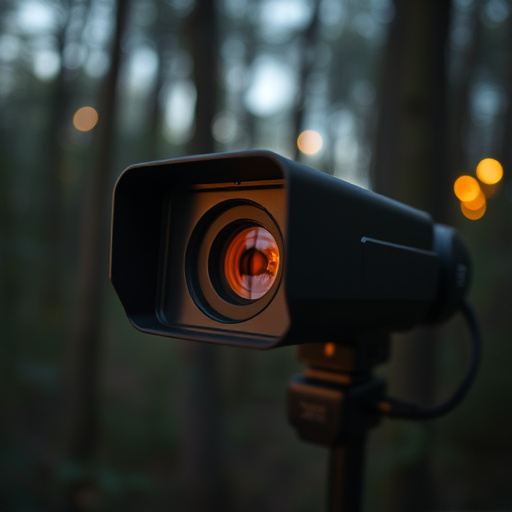"Hidden Cameras That Look Natural" integrate seamlessly into everyday home objects, offering discreet surveillance. While enhancing security and providing convenience, their concealed nature raises significant privacy concerns. As this technology evolves, exploring ethical implications and legal boundaries is crucial to balance security needs with privacy rights.
In the era of advanced technology, miniature surveillance devices have found their way into our homes through seemingly innocuous objects. This article explores the discreet yet powerful rise of hidden cameras that look natural, integrated seamlessly into everyday items. We delve into their functionality, discuss ethical considerations, and examine privacy concerns sparked by this innovative yet controversial technology. Prepare to uncover a new perspective on home security.
- Unveiling Discreet Technology: The Rise of Hidden Cameras
- Integrating Surveillance into Everyday Objects
- Ethical Considerations and Privacy Concerns
Unveiling Discreet Technology: The Rise of Hidden Cameras
In recent years, technology has taken a discreet turn with the emergence of miniature surveillance devices seamlessly integrated into everyday home objects. These hidden cameras that look natural are no longer science fiction; they’re now accessible and raising important privacy questions. From stylish looking clocks to seemingly ordinary light bulbs, these gadgets offer unparalleled vigilance, providing homeowners with peace of mind or, for some, causing concern about potential invasion of privacy.
Their compact size and realistic designs make them virtually indistinguishable from regular household items. This subtle approach allows them to capture footage without raising suspicion, making them popular choices for both home security monitoring and covert surveillance. As this technology continues to evolve, it’s crucial to consider the ethical implications and legal boundaries surrounding their use.
Integrating Surveillance into Everyday Objects
In today’s digital era, the integration of surveillance technology into everyday objects has transformed how we perceive privacy and security. One of the most subtle yet powerful innovations is the rise of hidden cameras that look natural. These miniature devices seamlessly blend into common household items like lamps, door knobs, or even paintings, offering a discreet way to monitor various spaces. By disguising themselves as ordinary objects, these hidden cameras provide an added layer of protection and peace of mind for homeowners without compromising aesthetics.
The appeal of such technology lies in its ability to capture high-quality footage without drawing attention. Whether it’s a parent ensuring their child’s safety or a business owner monitoring a retail space, these natural surveillance devices offer versatility and convenience. With advanced features like motion detection and remote access via smartphones, users can stay informed in real time, making them valuable tools for both personal and professional settings.
Ethical Considerations and Privacy Concerns
The rise of miniature surveillance devices, often disguised as everyday home objects like candles or smoke detectors, raises significant ethical considerations and privacy concerns. While these hidden cameras that look natural can provide a sense of security for homeowners, they also tread on personal privacy boundaries. The very nature of their concealment encourages an invasion of privacy, as individuals may not be aware they are being recorded.
This technology raises complex ethical questions, particularly when it comes to consent and the potential misuse of recorded footage. As these devices become more accessible, it’s crucial to establish guidelines that balance home security needs with the right to privacy. Users should be transparent about their surveillance practices and ensure informed consent from all parties involved, especially in shared living spaces.
The integration of miniature surveillance devices into everyday home objects presents a fascinating evolution in security technology. As we’ve explored, ‘hidden cameras that look natural’ offer unprecedented discretion while providing peace of mind. However, it’s crucial to navigate this innovative landscape with ethical considerations and privacy concerns at the forefront. Striking a balance between convenience and autonomy is essential as we adapt to these discreetly integrated technologies.
